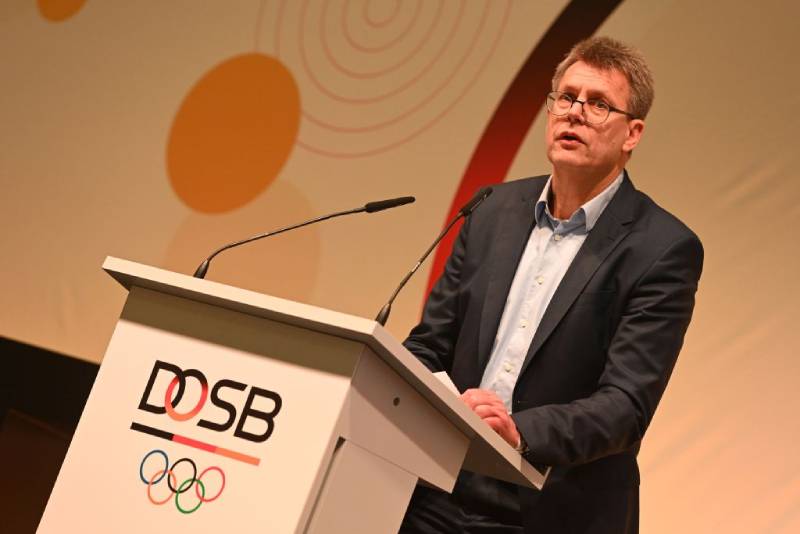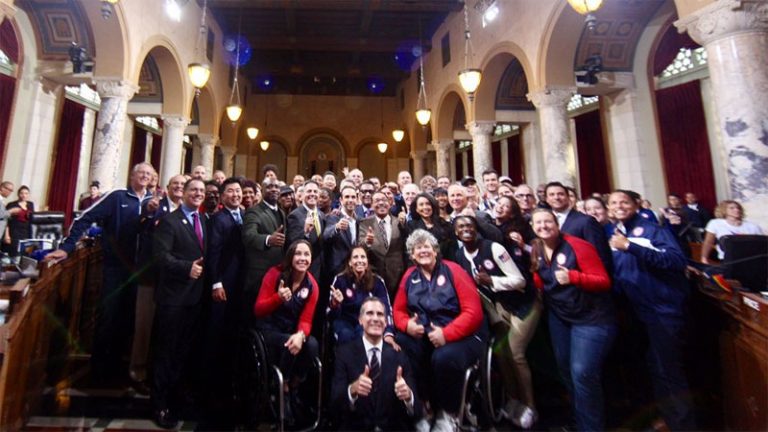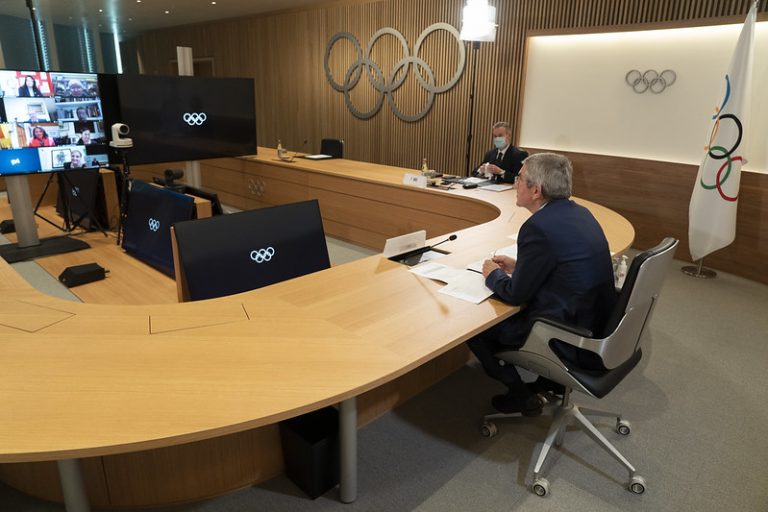The German Olympic Sports Confederation (DOSB) has agreed to move forward with an Olympic bid after members unanimously voted to back the so-called “Frankfurt Declaration” at the organization’s General Assembly held in the city this week.

The approval allows the DOSB to begin developing a detailed concept for a future Olympic bid.
But first, officials will need to narrow down their preferences. Still undecided is whether Germany will pursue a Summer Games beginning with the next available edition in 2036 or in 2040, or a possible Winter Games in 2038, 2042 or beyond. Multiple cities are interested in being involved.
“We started the process very differently than we have in recent years,” DOSB President Thomas Weikert told German broadcaster ZDF.
“The focus is not on where and how, but rather why we want to have the Olympic and Paralympic Games in Germany.”
National Olympic Committees have been feeling more pressure to get organized and engaged with the International Olympic Committee (IOC) early if they intend to host a future Games. A new, informal IOC bid process has no set timelines and the IOC has already demonstrated that it will elect hosts well in advance of typical timelines and without notice.
Just last week the IOC announced that it will award two editions of the Winter Games next July with the French Alps the sole preferred candidate for 2030 and Salt Lake City alone in the running for 2034. Additionally, Switzerland was elevated to “privileged dialogue” for the 2038 Games, meaning it has until 2027 to comply with all of the IOC requirements before it will be named preferred candidate for that edition. All others, including Germany, will be locked out of the process until then.
Brisbane was shockingly and unexpectedly singled out as preferred host for the 2032 Games in 2021 and later elected, leaving other nations including Germany left on the sidelines.
As many as 11 regions have already made public expressions of interest in hosting the 2036 Games including India, South Korea, Poland, Indonesia, Qatar, Hungary, Turkey, Mexico, Egypt and U.K.
Many German’s are uneasy with a pursuit of the 2036 Games as it marks the uncomfortable 100th anniversary of the Berlin 1936 Nazi propaganda Olympics. A Games in 2040 seems more palatable – but either way a decision will need to be made in the next year or two.
Weikert says the DOSB will determine a host region by Summer 2024 with the likelihood that two cities might cohost to maximize sustainability and eliminate the need for construction. Former hosts Berlin and Munich have been mooted as early favorites due to existing Olympic Stadiums.
In October Former Croatian president Kolinda Grabar-Kitarović who chairs the IOC’s Future Host Commission for Summer Games told the IOC Session “Any decisions about 2036 will be made by new IOC leadership and not before 2026 or 2027, ” referring to the mandatory end of IOC President Thomas Bach’s two terms in office and planned 2025 election of a new president.
Germany is able to plan a 2038 Winter Games bid, but could only move forward should Switzerland and the IOC part ways before 2027, otherwise the DOSB would have to focus on 2042.
Germany last hosted the Olympics in 1972 with the tragic terror-filled Munich Games. Since then, the nation has failed in five straight applications (both Summer and Winter) and abandoned at least two others before they left the Gate. Hamburg dropped a 2024 bid in 2015 after losing a general referendum. Munich canceled plans for a 2022 Winter Games bid when voters rejected the proposal.
The DOSB released more promising numbers as part of the Frankfurt Declaration. A Forsa survey commissioned by the DOSB indicated 67 percent of those asked in regions across Germany support a Games, that’s an uptick of 4 percent over numbers gathered in 2022.
Broken down by cities that are currently in consideration as possible hosts Leipzig has 73 percent support; Dusseldorf 72, Munich 67, Hamburg 64 and Berlin 60.
However, the scientific methodology of the poll has been criticized as data was gathered both online and by telephone and in conjunction with the public outreach campaign “Deine Ideen. Deine Spiele” (Your Ideas. Your Games). The survey period was from October 17 and November 8 and included 1000 respondents from each city and a total of 7,012. The pollster indicated the error tolerance is +/- 2.5 percentage points.
According to ZDF the potential for necessary government funding of the project remains unclear. The federal government had promised 1.5 million euros (USD $1.6 million) to support the bid but those funds are on hold due to a budget freeze. A federal government representative said they would “support the DOSB in a strong and credible Olympic bid” but no specifics have been offered.
Weikert echoed intentions and concerns during closing remarks at the General Assembly
“I think we should do what we ask of our athletes: be ambitious, pursue a big goal, work hard and win in the end.”
“We should show our athletes that we have their backs. That we want to give them the home advantage that will make them even more successful.
“For this reason and for many other reasons, today we at the DOSB would like to make it unmistakably clear, with great unity and with great confidence: We are going on to the Olympics and Paralympics in Germany. Whether Summer or Winter Games. Whether it’s 2036 or 2040, we won’t back down.”


